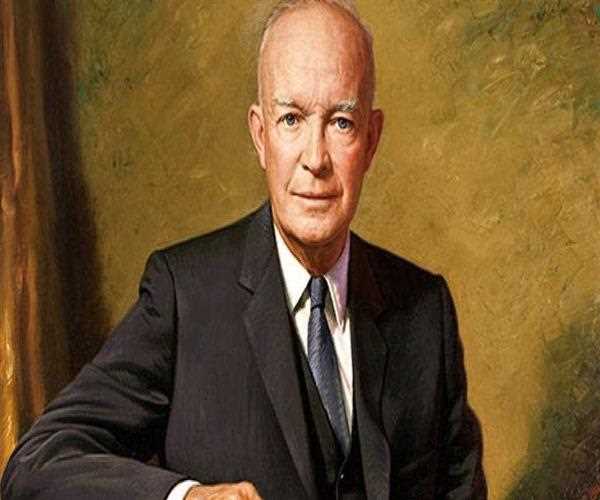In 1952, driving Republicans persuaded Eisenhower (at that point in charge of NATO powers in Europe) to keep running for president; he prevailed upon a persuading triumph Democrat Adlai. Amid his administration, Eisenhower oversaw Cold War-period pressures with the Soviet Union under the approaching danger of atomic weapons, finished the war in Korea in 1953 and approved various undercover hostile to comrade tasks by the CIA around the globe.

On the home front, where America was getting a charge out of a time of relative thriving, Eisenhower fortified Social Security, made the enormous new Interstate Highway System and moved off camera to dishonor the out of control hostile to Communist Senator Joseph McCarthy. Despite the fact that mainstream all through his organization, he vacillated in the security of social liberties for African Americans by neglecting to completely authorize the Supreme Court's order for the integration of schools in Brown v. Leading body of Education (1954).
Conceived in Denison, Texas, on October 14, 1890, Dwight David Eisenhower experienced childhood in Abilene, Kansas, as the third of seven children in a poor family. To the trouble of his mom, an ardent Mennonite and radical, youthful Ike (as he was known) won an arrangement to the U.S. Military Academy at West Point, New York, and graduated amidst his class in 1915. While positioned as a second lieutenant in San Antonio, Texas, Eisenhower met Mamie Geneva Doud. The couple wedded in 1916 and had two children, Doud Dwight (who passed on of red fever as a little kid) and John.
World War I finished just before Eisenhower was planned to go to Europe, baffling the youthful officer, however, he before long figured out how to pick up an arrangement to the Command and General Staff College at Fort Leavenworth, Kansas. Graduating first in his class of 245, he filled in as a military associate to General John J. Pershing, authority of U.S. powers amid World War I, and later to General Douglas MacArthur, U.S. Armed force head of staff. Amid his seven years serving under MacArthur, Eisenhower was positioned in the Philippines from 1935 to 1939.
Eisenhower returned not long after Nazi Germany's attack of Poland started the episode of World War II in Europe. In September 1941, he got his first broad's star with an advancement to brigadier general. After Japan assaulted Pearl Harbor that December, U.S. Armed force Chief of Staff General George C. Marshall called Eisenhower to Washington, D.C. to fill in as an arranging officer. Starting in November 1942, Eisenhower headed Operation Torch, the fruitful Allied intrusion of North Africa. He at that point coordinated the land and/or water capable attack of Sicily and the Italian territory in 1943 that prompted the fall of Rome in June 1944.
Made a full broad in mid 1943, Eisenhower was designated incomparable officer of the Allied Expeditionary Force in December of that year and given the duty of initiating the arranged Allied intrusion of Nazi-involved Europe. On D-Day (June 6, 1944), in excess of 150,000 Allied powers crossed the English Channel and raged the shorelines of Normandy; the intrusion prompted the freedom of Paris on August 25 and turned the tide of the war in Europe conclusively the Allied way.
In 1948, Eisenhower left dynamic obligation and progressed toward becoming leader of New York City's Columbia University. His short come back to non military personnel life finished in 1950, be that as it may, when President Harry S. Truman solicited him to take order from the new North Atlantic Treaty Organization (NATO) powers in Europe. In that position, Eisenhower attempted to make a bound together military association that would battle potential socialist hostility around the world.
After blended outcomes in essential races against the Republican leader, Senator Robert A. Taft of Ohio, Eisenhower surrendered his bonus in the Army and came back from his NATO base in Paris in June 1952. At the gathering's national tradition that July, he won the Republican designation on the primary tally. Under the motto "I Like Ike" and with Senator Richard M. Nixon of California as his running mate, Eisenhower at that point crushed Adlai Stevenson to end up the 34th leader of the United States.